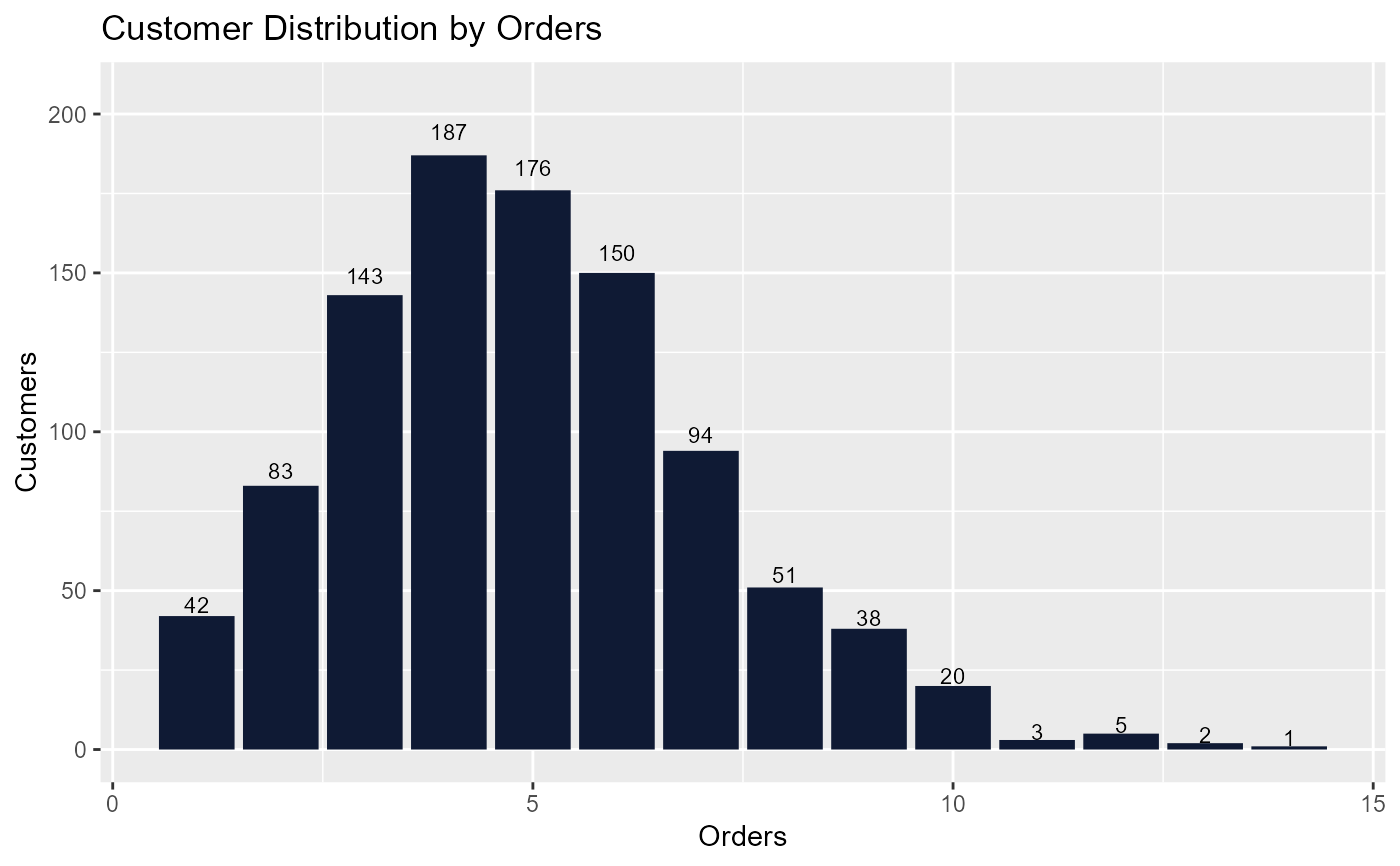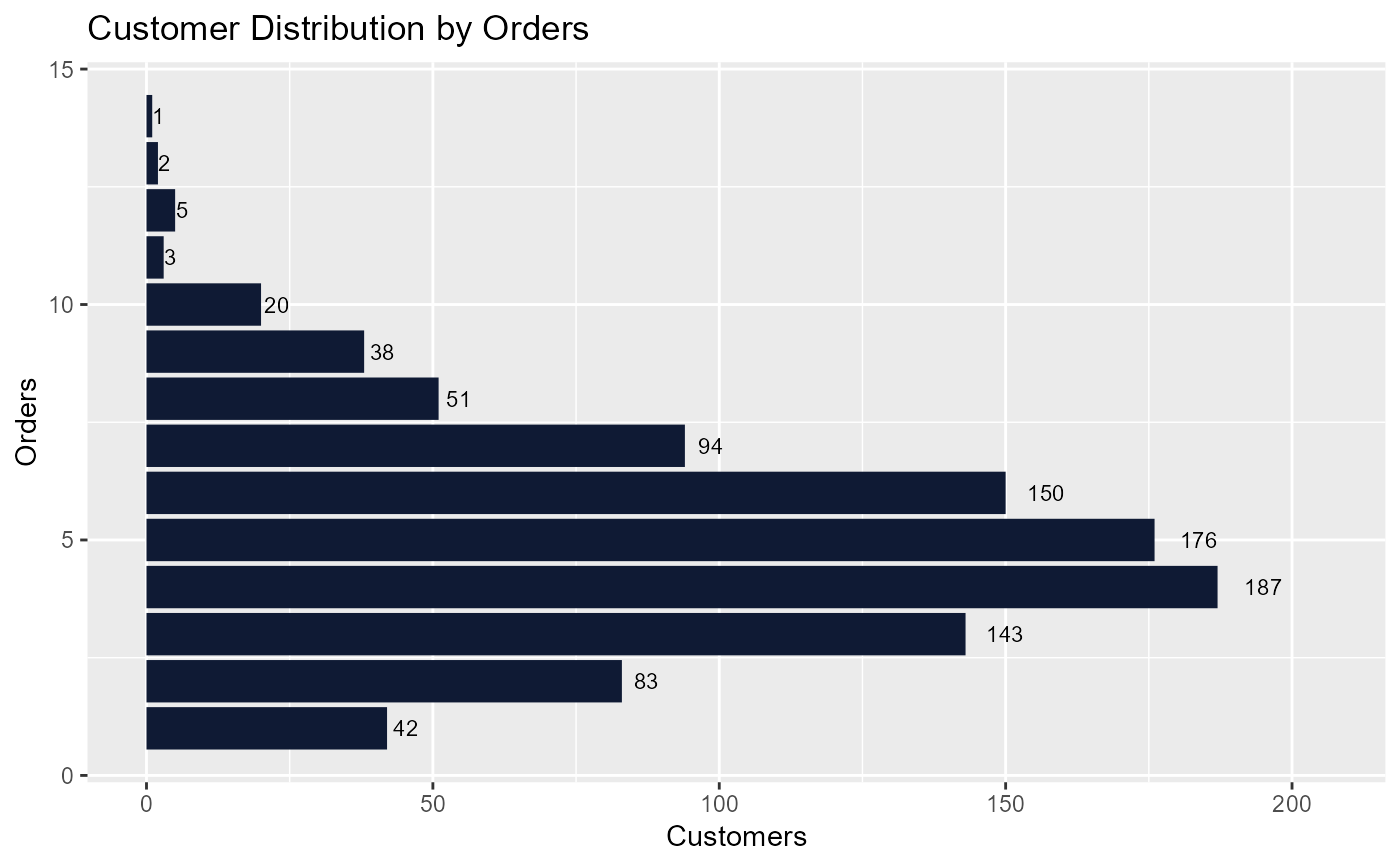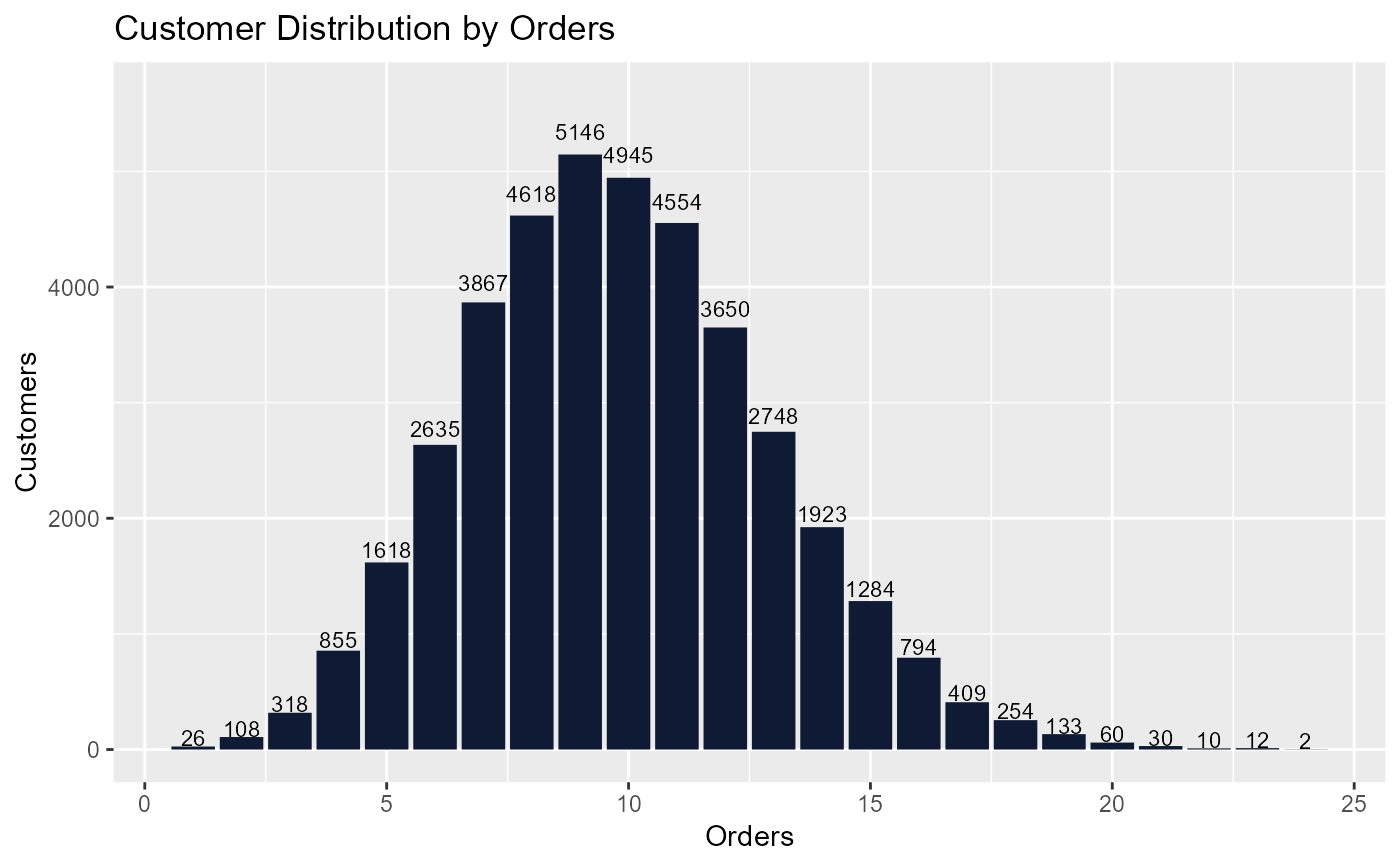Visualize the distribution of customers across orders.
Usage
rfm_plot_order_dist(
rfm_table,
flip = FALSE,
bar_color = NULL,
plot_title = NULL,
xaxis_label = NULL,
yaxis_label = NULL,
bar_label_size = 3,
bar_labels = TRUE,
interactive = FALSE,
animate = FALSE,
print_plot = TRUE
)Arguments
- rfm_table
An object of class
rfm_table.- flip
logical; if
TRUE, creates horizontal bar plot.- bar_color
Color of the bars.
- plot_title
Title of the plot.
- xaxis_label
X axis title.
- yaxis_label
Y axis title.
- bar_label_size
Size of bar labels.
- bar_labels
If
TRUE, add labels to the bars. Defaults toTRUE.- interactive
If
TRUE, usesplotlyas the visualization engine. IfFALSE, usesggplot2.- animate
If
TRUE, animates the bars. Defaults toFALSE.- print_plot
logical; if
TRUE, prints the plot else returns a plot object.
Deprecated Functions
rfm_order_dist() has been deprecated and will be made defunct. It has
been provided for compatibility with older versions only, and will be made
defunct at the next release.
Instead use the replacement function rfm_plot_order_dist().
Examples
# using transaction data
analysis_date <- as.Date('2006-12-31')
rfm_order <- rfm_table_order(rfm_data_orders, customer_id, order_date,
revenue, analysis_date)
# order distribution
rfm_plot_order_dist(rfm_order)
 # horizontal bars
rfm_plot_order_dist(rfm_order, flip = TRUE)
# horizontal bars
rfm_plot_order_dist(rfm_order, flip = TRUE)
 # plotly
rfm_plot_order_dist(rfm_order, interactive = TRUE)
# using customer data
analysis_date <- as.Date('2007-01-01')
rfm_customer <- rfm_table_customer(rfm_data_customer, customer_id,
number_of_orders, recency_days, revenue, analysis_date)
# order distribution
rfm_plot_order_dist(rfm_customer)
# plotly
rfm_plot_order_dist(rfm_order, interactive = TRUE)
# using customer data
analysis_date <- as.Date('2007-01-01')
rfm_customer <- rfm_table_customer(rfm_data_customer, customer_id,
number_of_orders, recency_days, revenue, analysis_date)
# order distribution
rfm_plot_order_dist(rfm_customer)
